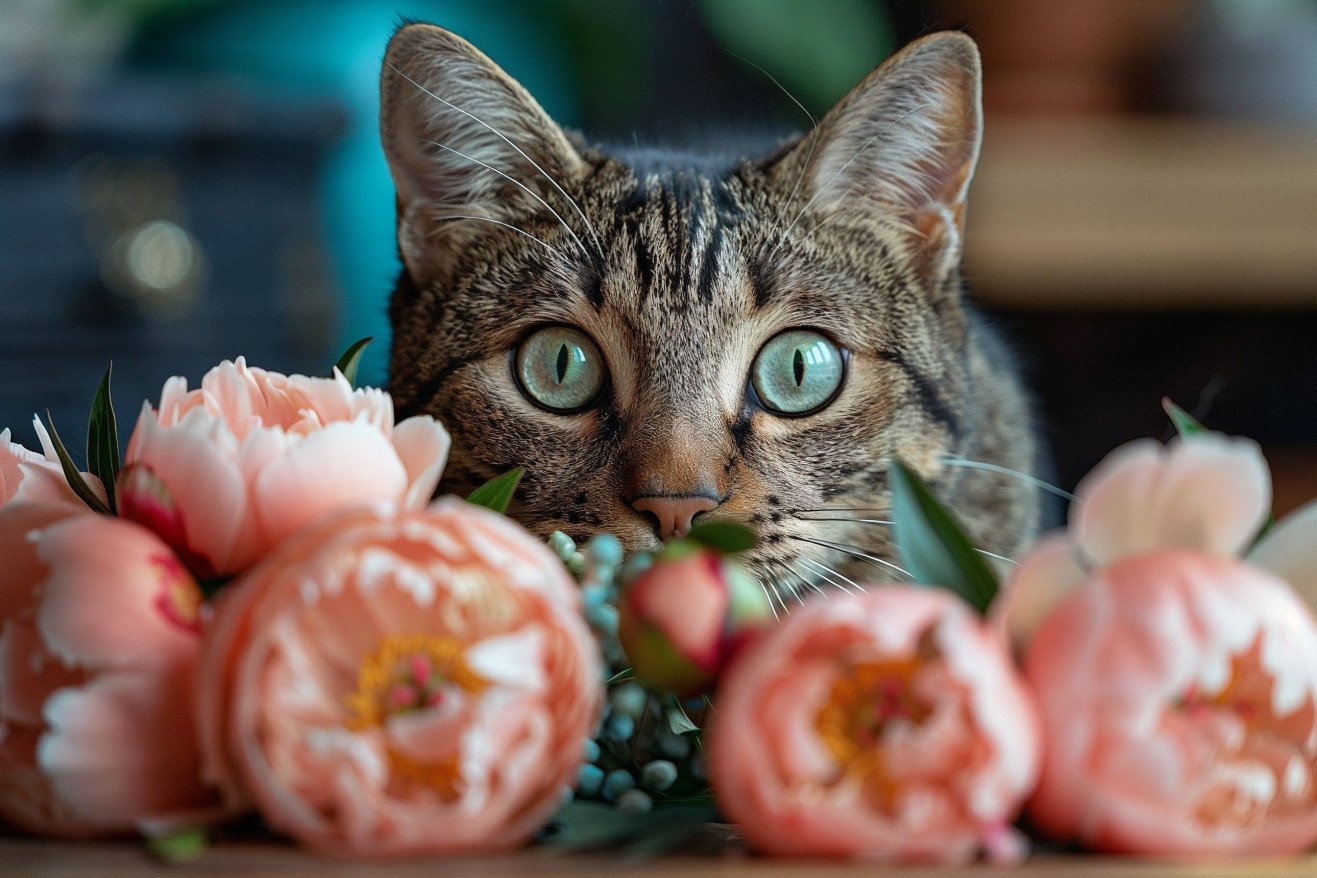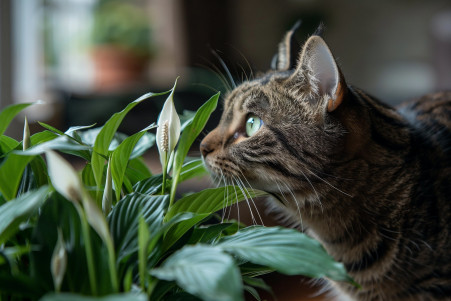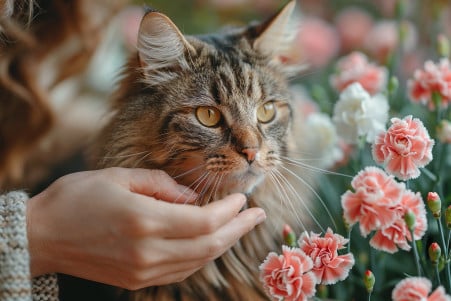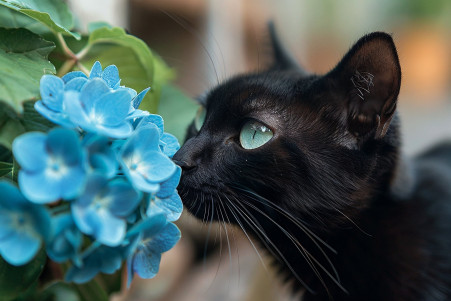Can Cats Eat Peonies? What You Need to Know About These Flowers
21 April 2024 • Updated 21 April 2024

Peonies are known for their big, beautiful, and fragrant flowers, but can your cat safely enjoy them? Peonies (Paeonia spp.) are listed as non-toxic to cats by the ASPCA. Although consuming large quantities of the flowers, stems, or leaves can lead to some minor gastrointestinal upset, peonies are not toxic to cats when they are ingested.
In this article, we'll take a deep dive into the studies to find reputable sources that describe the properties and effects of peonies, so we can separate the facts from the things you may read online. By examining everything from veterinary toxicology research to the opinions of experts who study how safe pets are around ornamental plants, we aim to give you a full view that will help you decide whether or not to let your cat near these beautiful flowers.
Are peonies toxic to cats?
Symptoms and First Aid for Peony Ingestion in Cats
If your cat has nibbled on a peony plant, it's important to watch for potential symptoms like vomiting, diarrhea, loss of appetite, and lethargy. While peonies are not considered highly toxic to cats, ingesting them can still lead to gastrointestinal upset.
Fortunately, these symptoms typically resolve within 12-24 hours with proper monitoring and care. If you suspect your cat has eaten part of a peony, immediately remove any remaining plant material from their mouth and environment. Do not induce vomiting, as this can cause further complications. Instead, contact your veterinarian or the Pet Poison Helpline right away.
Be prepared to provide your vet with a sample or photo of the peony to aid in diagnosis and treatment. Identifying the plant your cat has ingested is invaluable information. While peonies are not extremely toxic, prompt veterinary care is still recommended if your cat shows signs of illness after ingesting any part of the plant. With proper care and monitoring, your feline friend should recover quickly.
Other Flowers Safe for Cats
If you have a cat and are looking for other flowers that are safe to have around your pet, there are many other options to choose from. Southern Living lists several flowers that are safe for cats, including African violets, asters, bromeliads, orchids, roses, and sunflowers. However, always make sure to verify that a plant is safe for your pet before bringing it into your home by checking the ASPCA's list of non-toxic plants for pets.
Even if a plant is non-toxic, it's still important to take steps to keep your cat from eating or otherwise harming it. For example, as suggested by Cats.com, you can create a plant room or keep plants in a place where they are out of reach to limit your cat's exposure to them. By finding the right non-toxic plants and taking steps to keep your cat safe around them, you can enjoy having beautiful flowers in your home and garden.
How to Cat-Proof a Garden with Peonies
For people who already have peonies in their gardens, there are several ways to keep cats away from the plants. House Digest notes that one of the most effective methods is to create physical barriers around the peonies by using fencing, wire mesh, or even overhanging coverings. The site also recommends using cat-safe repellents like citrus peels, double-sided tape, or homemade sprays to keep cats away from the plants.
In addition, UnderCover Pet Houses suggests offering alternative plants or spaces in the garden that are more appealing to cats. Meanwhile, Catster stresses the importance of keeping a close eye on cats when they're around peonies and removing them from the area if they show any interest in the plants.
Although peonies are only mildly toxic, it's still important to make sure that cats can't access them to prevent any potential problems. By using a combination of physical barriers, repellents, and close supervision, pet parents can make sure that they can enjoy these lovely flowers in their gardens without worrying about their pets' safety.
More Poisonous Plants for Cats
While peonies are only mildly toxic, there are many other common household plants that can be harmful to cats. PetMD notes that highly toxic plants include lilies, azaleas, sago palms, and oleander, all of which can cause serious symptoms and even death. Meanwhile, moderately toxic plants like aloe vera, ivy, and dieffenbachia can cause vomiting, diarrhea, and irritation.
As The Spruce points out, it is important for pet owners to know the toxicity of any plant they bring into their home. Checking lists like the ASPCA's list of toxic and non-toxic plants can help make sure that your cat is safe in your home.
Conclusion: How to Create a Safe and Healthy Space for Cats and Plants
Although peonies are only mildly toxic to cats, it’s still important to make sure that cats can’t access them and potentially eat them. By being aware of the risks, offering cat-safe options, and using protective measures like physical barriers and repellents, cat owners can feel comfortable planting peonies in their yards.
However, to make sure that an indoor space is truly safe for cats, it’s important to research the toxicity of all plants and carefully vet them before introducing them into the home. With the right precautions and planning, it’s possible to create a space that’s both aesthetically pleasing and safe for cats.


